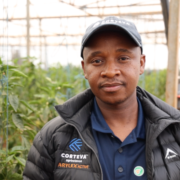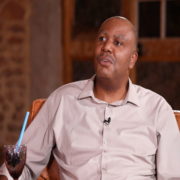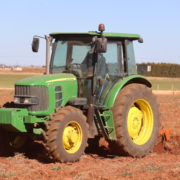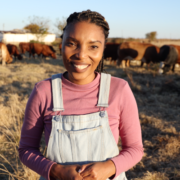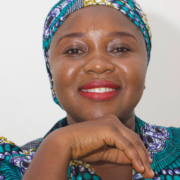Up close and personal with Eric Mauwane – African Farming
WHAT IS THE BEST ADVICE YOU’VE EVER BEEN GIVEN?
Agriculture is a numbers game, so, whatever you do, do it big. Big doesn’t mean many hectares, but it does mean maximising production on whatever space you operate on.
WHAT WOULD YOU HAVE DONE DIFFERENTLY IF YOU COULD?
I should have started by leasing land instead of buying it. I got off on the wrong foot by spending all my money on land while I was still learning. I should have invested that money in building up gradually.
AND YOUR BIGGEST ACHIEVEMENTS TO DATE?
Having grown from where I began, coming to master a particular crop and getting recognition in the industry are my biggest successes.
WHO HAS MADE THE MOST IMPORTANT CONTRIBUTION TO YOUR SUCCESS?
My late father, Buti Mauwane, who passed away a few months ago. This man, through his advice and support, has built character in me. Vincent Sequeira of Greenway Farms also played a major role in my success.
WHAT IS YOUR RELATIONSHIP WITH YOUR NEIGHBOURS LIKE? CAN YOU COUNT ON THEM FOR SUPPORT?
We have a great relationship with our neighbours. I’m in between Greenway Farms, Pinnochio Farms and other major producers who contribute so much, especially in information sharing and knowledge transfer.
DID YOU FIND IT HARD TO SECURE FINANCING? WHAT ADVICE CAN YOU OFFER OTHERS WHO ARE BATTLING TO GET FUNDING?
The most painful part of being a black farmer is access to finance. I’d advise them to start as cheap as possible don’t buy expensive land, rather lease first. Build your credit profile and expand from there.
WHAT ROLE DO INPUT SUPPLIERS PLAY IN YOUR BUSINESS?
I’ve always involved my suppliers in the business because they know their products better than I do.
WHAT ADVICE WOULD YOU GIVE THE MINISTER OF AGRICULTURE IF YOU HAD THE CHANCE?
She must crack the whip and get her senior staff to visit farms and see what the people they service are doing. She should also visit as many farmers as possible so that she can experience firsthand what we are going through.

